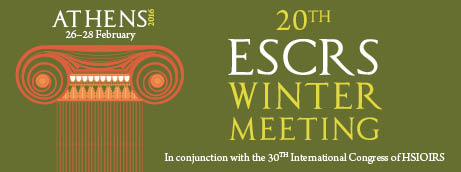Are resident complications in cataract surgery higher at the beginning of the academic year?
(results will display both Free Papers & Poster)
Session Details
Session Title: Cataract I
Session Date/Time: Friday 26/02/2016 | 10:30-12:30
Paper Time: 11:12
Venue: MC3 Room
First Author: : Z.Shalchi UK
Co Author(s): : O. Kailani G. Larkin
Abstract Details
Purpose:
To study cataract surgery capsule-related complication rates in resident surgeons across their year at King’s College Hospital.
Setting:
London Teaching Hospital, UK- King's College Hospital
Methods:
We used the King’s College Hospital Medisoft database to study all cataract extraction procedures performed over a 10 year period to July 2015. We included all cases performed by resident surgeons (senior house officers, specialist registrars, specialty registrars and fellows). We defined capsule-related complications as posterior capsular breaks (with or without vitreous loss), zonular dehiscence, and anterior capsular tears (with or without vitreous loss). Dropped nuclei were also included in the analysis.
Results:
Eight thousand, one hundred and sixty eight cataract extractions were performed by trainees in the study period. Of these, 113 (1.38%) had capsule-related complications. The risk of complications in the first 6 months of the training year (August to January) was not different to that in the second 6 months (February to July) (1.59% and 1.18%, respectively, Chi-square 2.52, p=0.12). The risk was not higher in any quartile than another (p>0.1). The month with the highest risk of complications was December (risk 2.30%).
Conclusions:
Capsule-related complications in cataract surgery performed by residents is no higher at the beginning of the academic year than the end.
Financial Disclosure:
NONE


